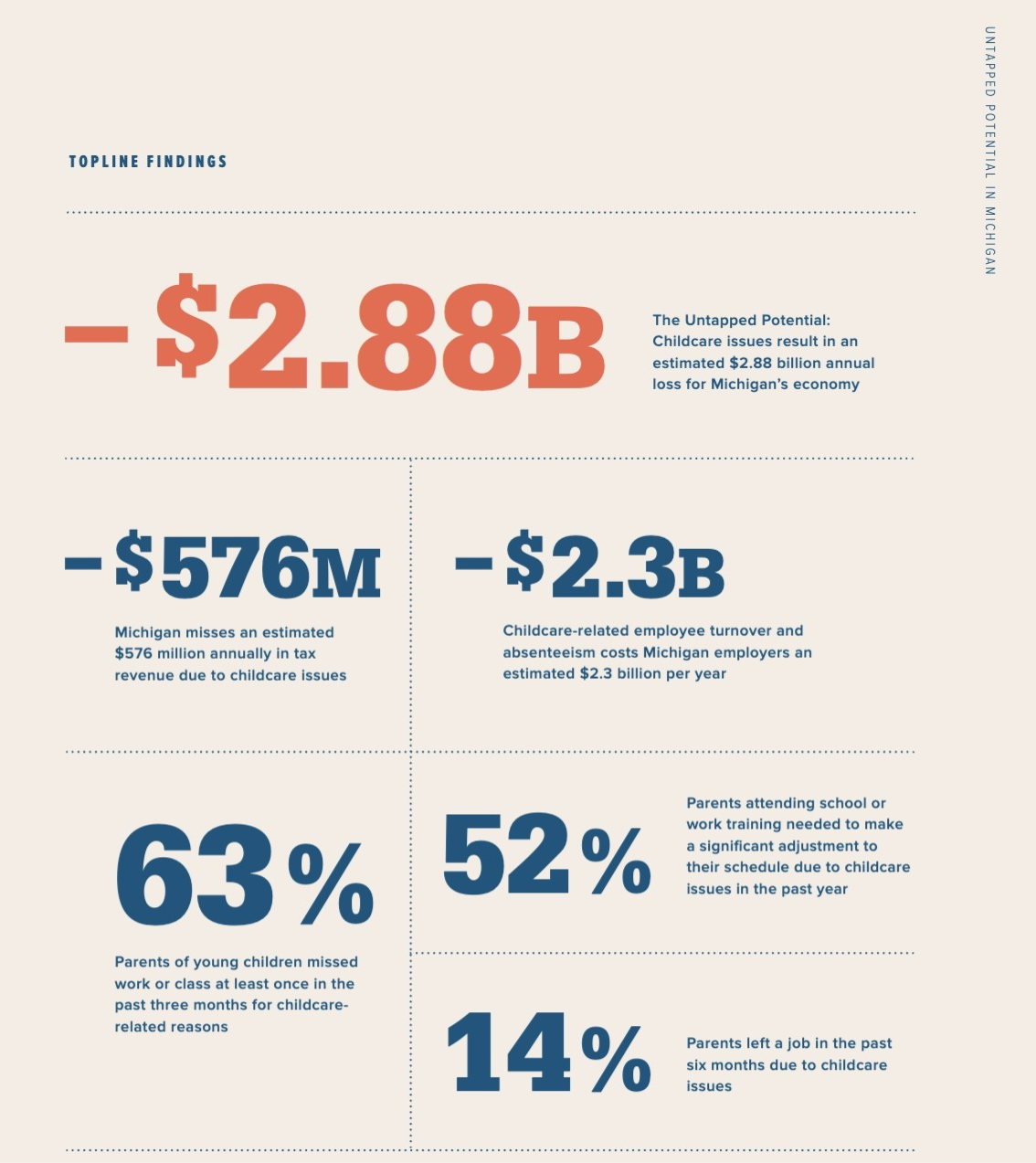LANSING, Mich. (Dec. 10, 2024) – Today, the Michigan Senate Housing and Human Services Committee passed legislation introduced by State Sens. Kristen McDonald Rivet (D-Bay City), Sarah Anthony (D- Lansing) and Kevin Hertel (D- St. Claire Shores) that aims to make child care more affordable for Michigan families and sustainable for child care professionals.
The bills to streamline and expand access to child care subsidies (SB 836) and modernize licensing (SB 837 and SB 839) have been recommended to the full Senate.
“Fixing a broken system that’s causing Michigan’s economy to lose nearly $3 billion annually and crushing our families and businesses is going to take a sustained public investment,” said Sen. McDonald Rivet. “Adjusting subsidies for inflation, cutting red tape for providers, and simplifying the process are important first steps on the course we must chart if we want child care professionals, young families and employers to say yes to Michigan and thrive here.”
Summaries of the child care bills passed today by the Senate Housing and Human Services Committee follow:
- SB 836 (Sen. Kristen McDonald Rivet) would re-establish provider rates to the FY 2023 levels and require reimbursements made to a child care provider under the Dept. of Lifelong Education, Advancement, and Potential’s (MiLEAP) Child Development and Care Program to be adjusted annually for inflation at the rate of the Detroit Consumer Price Index (CPI).
- SB 837 (Sen. Kevin Hertel) would amend the childcare licensing Act to require MiLEAP to establish a process for childcaring institution licensees to request a review and appeal of certain violations of child care organization rules.
- SB 839 (Sen. Sarah Anthony) would amend the childcare licensing Act to allow a superintendent of an intermediate school district (ISD) or local school district to certify that a child care center in a school building of that district met fire safety requirements under the Act. Additionally, the bill would exempt from the Freedom of Information Act (FOIA) a recording provided to MiLEAP by a licensee during an examination or investigation. This aims to ease the financial burden on child care providers and professionals and help transition to PreK for All.
During an October 2024 committee hearing, legislators heard from leading business voices, child care providers, parents, and Sen. McDonald Rivet about child care’s most significant barriers and the financial impact on families, employers, and Michigan’s economy. Their testimony cited “MI Untapped Potential,” a comprehensive study from the US Chamber of Commerce, the Michigan Chamber of Commerce and the Early Childhood Investment Corporation which finds that Michigan loses $2.88 billion annually, in the form of workforce productivity and economic gains, due to its lack of reliable child care.
Testimony also noted that Michigan ranks 39th in the nation for workforce participation, and the lack of child care is the top reason young workers are choosing not to enter the workforce. Improving child care access and affordability are listed priorities of the Michigan Chamber of Commerce, local and regional chambers around the state, Business Leaders of Michigan, and virtually every major employer in the state.
This legislation builds on recent State Budget investments in early child care and education to lower child care costs, boost child care workers, and navigate demand impacts as Michigan moves toward universal pre-K. The FY2025 budget includes funds for operational grants and start-up capital for licensed providers caring for infants and toddlers to help stabilize child care businesses and free up resources to increase staff wages.

(At right) Sen. Kristen McDonald Rivet testifies at the October 17, 2024, Senate Housing & Human Services Committee hearing on child care along with Taunya Sims, a home-based provider with thirty years of experience.

Topline findings from “MI Untapped Potential,” a report from the US Chamber of Commerce, Michigan Chamber of Commerce and Early Childhood Investment Corporation detailing the impact Michigan’s lack of accessible and affordable childcare has on our working parents, job providers and economy.
###
